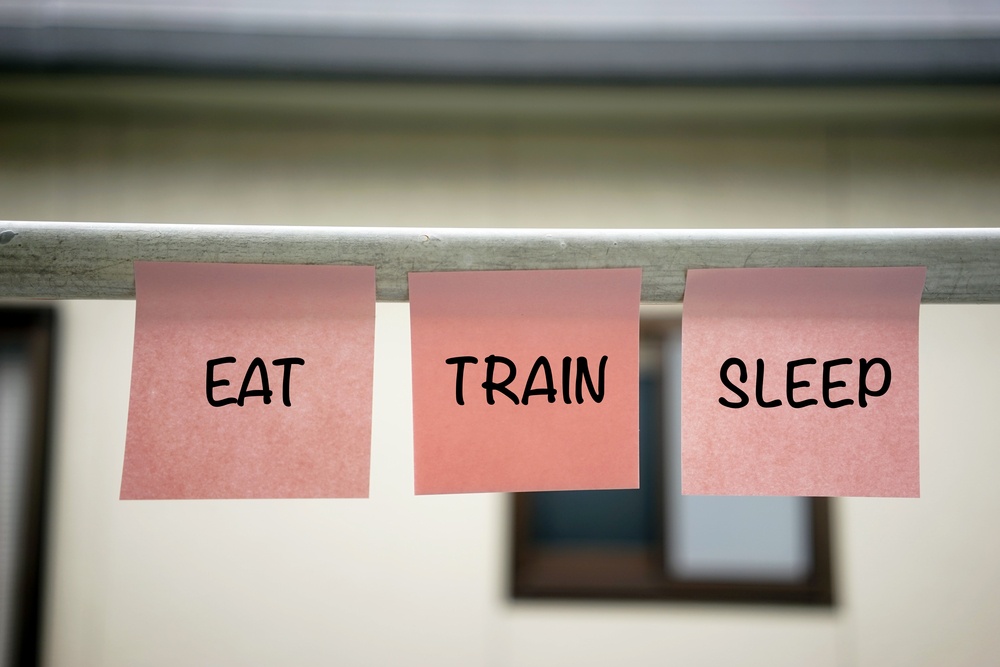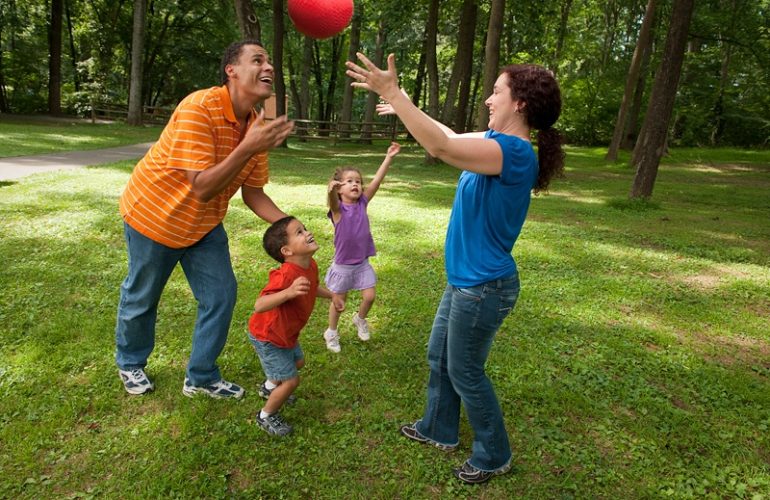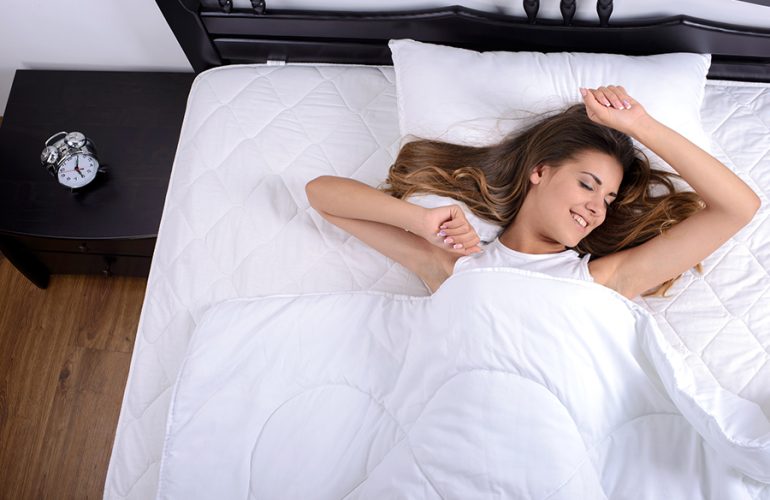When you think of sleep problems and sleep disorders, your first thought may not be on athletes — whether professional, school or college athletes. However, there should be a lot of focus going into this special segment of the community.
There’s a high propensity for NFL lineman and sleep apnea. In fact, an NFL lineman has a four times more likelihood of having the sleep disorder than an average person of the same age. And, it’s not just the NFL — our college athletes are susceptible.
Even though team practices contribute to athletes skimping out on their sleep, they’re especially in need of quality sleep since they require downtime from their workouts to repair and rebuild their bodies following every team practice and game.
Studies document the adverse consequences of sleep deprivation and how the buildup of sleep debt affects:
- Cognitive function
- Daytime sleepiness
- Mood
- Memory and learning tasks
- Performance
- Reaction time
Some research has already shown how sleep restriction negatively impacts physical performance, including:
- Cardiorespiratory functioning
- Weight-lifting
- Psychomotor tasks
These tasks require consistent performance and accuracy. We now have a better understanding of sleep deprivation and its effects on professional and local athletes with deprivation models being fairly characterized and well-documented.
Sleep and Athletic Performance Reaction Times
Many student athletes generally already carry a sleep debt because of their responsibilities and social and academic schedules. And, when you add in intense training to this sleep debt, it can result in decreased reaction times and more injuries in the actual games.
When an athlete is sleep deprived, it causes slower reaction times and lead to more errors, like missing a free throw or overlook a particular block. Those who run marathons are more susceptible to overheating and becoming fatigued more easily because of decreased mood.
A Stanford University study showed by extending sleep time, basketball players were able to improve their performance. After 10 hours a night of sleep for a five to seven week period, the players experienced a nine percent throw percentage increase and a 9.2 percent three-point field goal percentage increase. Sleep extension also resulted in a faster-timed sprint, better practices and reduced fatigue. The players also reported an improvement in their physical and mental well-being overall ratings during their games and practices.
It would seem coaches are inadvertently hindering their players’ performance by replacing their quality sleep with over-training.
Trainers and coaches should have common knowledge about the impact of:
- Over-training
- Jet lag
- Time-zone travel
They should also realize athletes require an adequate rest period for tissue and injury repair. This knowledge can help them come up with better schedule practices, games and training to optimize the performance of their teams.
Another factor that impacts the players’ performance and reaction times is the numerous sleep disorders like sleep apnea, insomnia and narcolepsy. Addressing these issues medically and coming up with strategies to get a better night’s sleep can help with performance and reaction times. As you know, improved sleep and improved reaction times makes for more successful games.
Jet Lag and Decreased Performance with Professional Athletes
The American Academy of Sleep Medicine refers to the term “jet lag” as a syndrome of excessive sleepiness or insomnia after traveling across a minimum of two time zones. Jet lag can lead to fatigue, impaired performance and even intestinal symptoms that last for a few days after traveling.
Troubles falling asleep at bedtime and troubles getting back to sleep upon awakening multiple times during the night seem to be the main sleep disturbances after traveling.
Athletes seem to be more susceptible to experiencing jet lag because they often travel and the competition times are frequently close to their travel times. Symptoms in athletes, including those above, are:
- Stomach upset
- Sleepiness
- Fatigue
There are more symptoms jet lag causes that can negatively impact the athletes’ performance.
Other symptoms are:
- Decreased physical and mental performance
- Inability to concentrate
- Irritability during the day
- Headaches
Again, symptoms like this impact the athlete’s ability to perform. It’s not just with professional athletes either. Many committed athletes who might never go professional still travel internationally for a certain sporting event. And, they often travel across several time zones.
Long-haul travel can lead to travel fatigue due to the strains and stresses associated with traveling such as:
- Little opportunities for physical movement
- Being confined to a cramped space
- Dehydration during flights
- Stressors involving travel plans
- Disrupted sleep and dietary patterns
Combining jet lag and sleep loss serves as a double jinx on how athletes perform, leading to decreased accuracy and increased reaction time — both of which are unwanted during competition.
Time zone changes may even affect winning percentages. Take NCAA basketball for example. The winning percentage for teams traveling from the west to the east seems to drop the most (38 percent) when they’re crossing two or more time zones.
Sleep disturbances can promote negative perceptual and physiological changes, thereby potentially being significant in regards to the adverse impact on athletic performance by long-haul travel. When it involves Paralympic athletes, the impact is particularly important because the athletes face additional physiological and logistical challenges when they travel by air.
The long-haul air travel schedule and cabin conditions both impact sleep, particularly overnight flights. For example, during a 24 hour simulated long-haul travel, 2.5 hours mean sleep duration was reported and during 18 hour of long-haul travel, professional football players reported only 5.5 hours of sleep. Those Paralympic athletes with spinal cord injuries may have further challenges of obtaining good quality and sufficient sleep during while traveling long-haul.
Decrease in Injuries with Adequate Sleep
Athletes need more and better quality of sleep in order for them to recover sufficiently from intense training sessions, injury and competition, according to the National Strength and Conditioning Association. The release of hormones promotes recovery where growth hormones and androgens are important for things like:
- Bone growth
- Muscle repair
- Oxidation of fat
- Muscle building
It’s during your deepest levels of NREM sleep (Stage 3) that the secretion of these hormones occurs. Therefore, it’s imperative for athletes (and average people) to obtain enough hours of quality sleep.
Sleep facilitates the recovery of the tendons, muscles, ligaments and joints from the wear and tear athletic training causes.
Sleep deprivation doesn’t just hinder performance. You’re more prone to injury when you’re active in a sleep deprived state, presenting long-lasting effects.
When you’re not getting enough sleep, it dulls your motor responses, leading to inefficient neuromuscular patterns, bad form and injury. Essentially, there isn’t a condition or disease, either mental or physical, that sleep deprivation makes worse.
When you’re sleep deprived, it compromises your immune system, making it weak. And, when athletes get sick, it leads to poor or less training. Sleep deprivation can also result in low-grade, chronic inflammation which can severely inhibit your body’s ability to repair tissue, muscle and tendon damage.
Therefore, athletes will experience a decrease in injuries with adequate sleep.
Tips for Better Sleep and Athletic Performance
To ensure you (or your athlete) gets a good night’s sleep to enhance mental capabilities and physical performance, here are some tips.
Manage Stress
Often sleep disturbances can be a result of training too frequently or too hard. They can also be due to overdoing and adding stress to other areas of your life. Try lower your stress levels with:
- Deep breathing exercises
- Yoga
- Reducing your training volume and/or intensity
- Reorganizing time management
Remove Blue Light at Bedtime
A couple hours before bedtime, remove all artificial light, including your electronics. Artificial light throws off your sleep by disrupting your circadian rhythm. To do this you can use blackout shades, wear a sleep mask, shut off your TV and electronics and cover your alarm clock.
Establish a Sleep Schedule
Since sleep is so essential for recovery, athletes should strive for getting at least seven hours of it a night. A good way to make sure you hit this goal is to establish a sleep schedule.
Take Naps
When you’re not able to get a good night’s sleep and you’re feeling fatigue, try taking a nap. Even a 15 minute power nap can make a huge difference.
Alternative Options
Other options to improve sleep and athletic performance include combining western sleep medicine and mind/body therapy. Acupuncture and focusing on proper nutrition can help.
Sleep is the foundation of recovery, performance and is essential to managing athletic training regimens. It’s often compromised and ignored by athletes due to demands like school or work or busy schedules.
Understanding athletes’ sleep behaviors and how they affect their performance and training can help come up with specific interventions to ensure adequate sleep. This information will equip coaches and athletes with the resources they need to improve the athletes’ sleep and tolerance to intense training regimens.
If you’re looking for sleep and athletic performance help, contact Sleep Medicine Specialist
Abid Bhat, MD MBA, we he and his team at Sweet Sleep Studio can help. Call (913) 221-6059. We have locations in Kansas: Leawood, Overland Park, and Shawnee.




